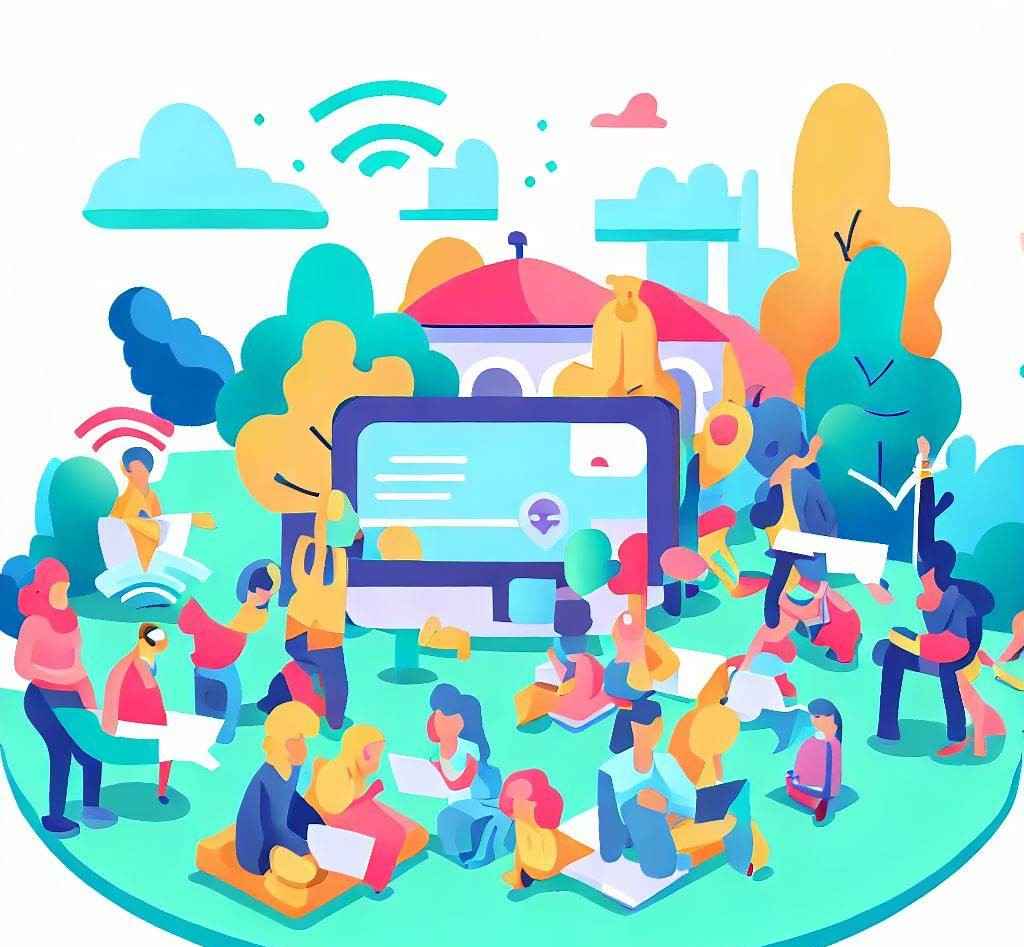Free Internet In today’s interconnected world, access to the Internet has become an essential part of our daily lives. From staying connected with friends and family to accessing information and resources, the internet empowers us in numerous ways.
However, not everyone has equal opportunities when it comes to internet access. Many individuals and communities face limitations due to various factors, such as geographical location, financial constraints, or lack of infrastructure. In this article, we will explore ways to unleash the power of free Internet access and enable individuals to connect and thrive.
#Understanding the Importance of Internet Access
The internet has transformed the way we live, work, and communicate. It provides access to a vast amount of information, educational resources, and opportunities for personal and professional growth. Internet access has become crucial for educational purposes, job applications, healthcare services, and social interactions. It bridges gaps and enables individuals to participate fully in the digital age.
#The Challenges of Limited Internet Connectivity
Despite the advancements in technology, limited internet connectivity remains a significant challenge in many parts of the world. Remote areas, underserved communities, and marginalized populations often struggle with inadequate infrastructure and high costs associated with internet services. This digital divide creates disparities in opportunities, hindering progress and development.
#Exploring Free Internet Options
Fortunately, there are several options available for accessing free internet, helping to bridge the gap and provide connectivity to those in need. Let’s explore some of these options:
Public Wi-Fi Networks
Public Wi-Fi networks are accessible in many public places such as cafes, restaurants, libraries, and airports. These networks allow users to connect to the internet free of charge. However, it’s important to note that public Wi-Fi networks may not always be secure, and caution should be exercised while accessing sensitive information or conducting online transactions.
Mobile Hotspots
Mobile hotspots are portable devices that allow you to create a Wi-Fi network using cellular data. These devices can be used to access the internet on various devices such as smartphones, laptops, or tablets. Mobile hotspots provide flexibility and can be a convenient option, especially when traveling or in areas with limited infrastructure.
Community Mesh Networks
Community mesh networks are community-driven initiatives that aim to provide free internet access to local neighborhoods or communities. These networks rely on a decentralized infrastructure, where multiple devices act as nodes to create a network that extends the reach of internet connectivity. By sharing resources and bandwidth, community mesh networks enable individuals to access the Internet without relying on traditional Internet service providers.
#Safety and Security Considerations
While accessing free internet, it is essential to prioritize safety and security to protect your personal information and maintain online privacy. Here are some considerations:
Protecting Personal Information
When accessing the internet, be cautious about sharing sensitive personal information. Avoid providing unnecessary details on public platforms and be mindful of the websites you visit or the applications you use. It is advisable to only share personal information on secure and trusted websites.
Using Virtual Private Networks (VPNs)
A Virtual Private Network (VPN) is a useful tool for enhancing online security and privacy. VPNs encrypt your internet connection and route it through a secure server, making it difficult for third parties to intercept or track your online activities. Using a VPN can add an extra layer of protection when accessing free internet networks.
#Leveraging Free Internet Resources
Beyond public Wi-Fi networks, mobile hotspots, and community mesh networks, there are additional resources available for accessing free internet:
Libraries and Community Centers
Public libraries and community centers often provide free internet access to their patrons. These spaces offer a conducive environment for studying, working, or simply browsing the web. Libraries also provide additional resources such as books, research materials, and educational programs, making them valuable hubs for accessing information.
Free Internet Programs and Initiatives
Various organizations and government initiatives have been launched to promote free Internet access. These programs aim to bridge the digital divide and provide opportunities for individuals who lack internet connectivity. By leveraging these programs, individuals can access free internet services and participate more fully in the digital world.
#Empowering the Unconnected
Access to free internet is not just about connectivity; it is about empowering individuals and communities. Here are some ways to support and advocate for free internet access:
Bridging the Digital Divide
Recognize the importance of bridging the digital divide and advocate for equal access to the internet. Support initiatives and organizations that work towards providing free internet in underserved areas. By promoting awareness and contributing to these efforts, we can empower the unconnected and create a more inclusive digital society.
Advocacy and Policy Efforts
Stay informed about policies and regulations related to internet access. Support advocacy efforts that aim to influence policies in favor of free Internet initiatives. Engage with local communities, policymakers, and organizations to promote equitable access to the Internet as a basic human right.
Conclusion
Access to free internet is a powerful tool that can transform lives and communities. By leveraging various options such as public Wi-Fi networks, mobile hotspots, community mesh networks, and other resources, individuals can overcome the limitations of limited internet connectivity. It is essential to prioritize safety and security while accessing free internet and to support initiatives that aim to bridge the digital divide. Together, we can unleash the power of free internet access and empower individuals to connect, learn, and thrive.
Free Internet FAQs:
1. Can I rely solely on free internet access?
While free internet access can be beneficial, it may not always provide the same reliability and speed as paid internet services. It is recommended to consider your specific needs and explore different options to ensure a stable and consistent internet connection.
2. Are there any limitations to using public Wi-Fi networks?
Public Wi-Fi networks can have limitations such as limited range, restricted bandwidth, or time limitations. Additionally, these networks may pose security risks, as they are often unsecured. It’s important to be cautious when accessing sensitive information or conducting online transactions on public Wi-Fi networks.
3. How can I ensure my online safety when using free internet?
To ensure online safety when using free internet, consider the following measures:
- Use strong and unique passwords for your online accounts.
- Enable two-factor authentication for added security.
- Install and regularly update antivirus and security software on your devices.
- Avoid clicking on suspicious links or downloading files from unknown sources.
- Use encrypted websites (HTTPS) whenever possible.
- Be cautious when sharing personal information online.
- Consider using a Virtual Private Network (VPN) to encrypt your internet connection.
4. Are there any disadvantages to using mobile hotspots?
While mobile hotspots offer convenience and portability, they do have some limitations. These include:
- Limited data plans: Mobile hotspots usually come with data caps, which means you have a limited amount of data to use each month.
- Network coverage: The quality and coverage of mobile networks can vary depending on your location, which may impact your internet speed and reliability.
- Battery life: Using a mobile hotspot can drain your device’s battery quickly, especially if multiple devices are connected.
- Cost: Depending on your mobile plan, using a mobile hotspot may incur additional charges or require a separate data plan.
5. What steps can I take to support initiatives for free internet access?
To support initiatives for free internet access, you can:
- Stay informed: Learn about organizations and initiatives working towards providing free internet access and stay updated on their progress and activities.
- Volunteer: Offer your time and skills to local community centers or organizations involved in providing free internet access.
- Advocate: Raise awareness about the importance of free internet access and advocate for policies that promote equitable connectivity.
- Donate: Contribute financially or donate equipment to organizations that are working to bridge the digital divide.
- Engage with policymakers: Reach out to local and national policymakers to express your support for free internet access and encourage them to prioritize this issue.

